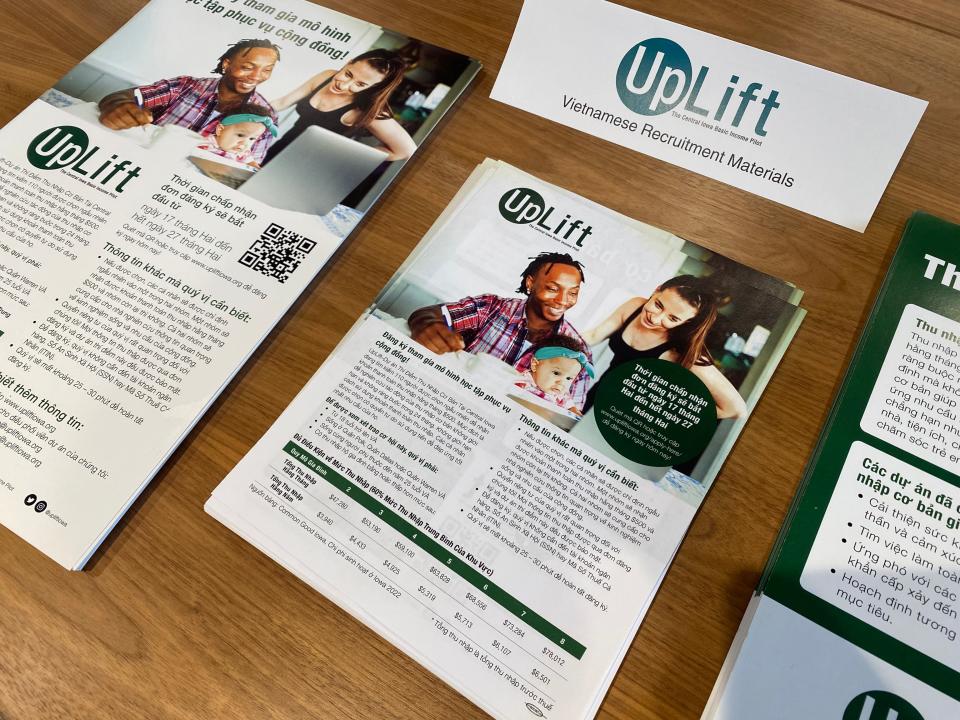110 Iowans now have an extra $500 per month in their hands. Here's who they are:
The 110 central Iowans participating in the state's first basic income study have now received their first $500 check — a monthly payment they'll receive for the next two years to pay for rent, utilities, child care and other basic living needs.
They were randomly selected from a pool of 6,000 who applied in February for UpLift — The Central Iowa Basic Income Pilot, a program led by The Tom and Ruth Harkin Institute for Public Policy & Citizen Engagement with support from more than 30 community partners and funding from 11 public and private entities.
Basic income programs often offer unrestricted, no-strings-attached monthly payments to help families in need meet the costs of their living expenses. Iowa is now among a number of states launching this kind of program, which local advocates say could help reduce poverty, drive conversations around poverty and further identify communities' needs.
More: Habitat for Humanity to build affordable housing neighborhood on Des Moines' northeast side

Participants will get debit cards that are reloaded each month with $500.
They'll also be offered "benefits counseling" to understand how the additional money will push their income higher and may impact their existing benefits, like child care or food assistance, Ashley Ezzio, one of two project coordinators at the institute running the program, previously told the Des Moines Register.
More: Basic income to water: How Des Moines metro cities will spend $137 million in COVID relief
Who are the participants?
Of the 110 people, a majority of them — 81% — are Polk County residents, according to a news release from the Harkin Institute. Ten percent live in Dallas County, and 9% are from Warren County. Program leaders sought to focus on those three counties to see how the monthly checks would impact people in need living in rural, micropolitan and metropolitan areas.
At least 70 participants — or 65% — live in a metropolitan area, while about 28 are in a micropolitan area. The rest live in rural areas.
The Harkin Institute also provided a breakdown of the participants' racial demographics: 55% of them are white. Twenty-six percent identified as Black or African American, while 10% said they are multi-racial or another race. Roughly 5% shared they are Asian, and another 5% said they are Latinx.
Participants also reported they are working and earning an average household income of just above $24,000 a year. Many participants said they are working full time and spend roughly 44% of their income on rent or other housing costs, about 14% above the national standard.
The participants are anonymous to the public, though researchers will frequently check in on their progress throughout the pilot program.
F. Amanda Tugade covers social justice issues for the Des Moines Register. Email her at ftugade@dmreg.com or follow her on Twitter @writefelissa.
This article originally appeared on Des Moines Register: Des Moines' basic income pilot recipients get their first $500 checks

